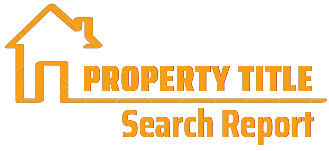Property Title Search Report
An excellent and professional online service which helps you step by step in most of the day to day legal document preparation and registration
Request Free Quotes
Understanding Lawyer Fees for Property Verification: A Comprehensive Guide
Understanding Lawyer Fees for Property Verification: A Comprehensive Guide
When it comes to buying or selling real estate, ensuring the authenticity and legality of the property is of utmost importance. Property verification is a crucial step in this process, and it involves conducting a thorough investigation of the property’s ownership, title, and associated legal documents. To navigate through this complex process, many individuals seek the assistance of a lawyer specializing in property law. However, it is essential to understand the lawyer fees for Property Verification to ensure transparency and informed decision-making. In this article, we will provide you with all the necessary information about lawyer fees for property verification.
The Importance of Property Verification
Property verification is a legal process that aims to validate the authenticity of a property and confirm its legal status. This verification involves examining various aspects, such as property ownership, title deeds, encumbrances, liens, pending litigation, zoning regulations, and compliance with local laws. By conducting thorough due diligence, potential buyers or sellers can mitigate the risk of fraud, avoid legal complications, and ensure a smooth transfer of property.
Role of a Lawyer in Property Verification
A lawyer specializing in property law plays a vital role in the property verification process. They possess the legal expertise to conduct a comprehensive examination of the property’s legal documents and identify any potential risks or issues. The lawyer will:
Review Title Documents: The lawyer will examine the property’s title deeds, previous sale deeds, and other ownership documents to ensure there are no discrepancies or disputes regarding ownership.
Search for Encumbrances: Encumbrances refer to any claims, liens, mortgages, or legal restrictions on the property. The lawyer will conduct searches to identify and analyse any encumbrances that may affect the property’s value or transferability.
Verify Legal Compliance: The lawyer will check whether the property adheres to local zoning laws, building regulations, environmental norms, and other legal requirements.
Identify Pending Litigation: It is crucial to determine if there are any pending legal disputes or litigation involving the property. This information helps in assessing potential risks and evaluating the property’s market value.
Provide Legal Opinion: Based on the findings of the property verification process, the lawyer will offer a legal opinion on the property’s authenticity, marketability, and any associated risks. This opinion serves as valuable guidance for the buyer or seller in making informed decisions.
Lawyer Fees for Property Verification
The Lawyer Fees for Property Verification can vary based on several factors, including the complexity of the case, the lawyer’s experience and reputation, geographical location, and the extent of legal services required. It is important to discuss the fee structure with the lawyer before engaging their services. Here are some common Lawyer fees for Property Verification arrangements:
Hourly Rate: Lawyers may charge an hourly rate for their services, which covers the time spent on property verification, document review, and legal analysis. The rate can vary depending on the lawyer’s experience and the local market.
Consultation Fee: Lawyers often charge an initial consultation fee, which covers the discussion of the client’s requirements, understanding the case, and providing preliminary advice.
Professional Fees: Lawyers charge professional fees for the actual property verification services rendered. These fees are usually based on an hourly rate or a fixed fee for the entire process.
Document Review Fees: Lawyers may charge additional fees for reviewing and analysing the property’s legal documents, such as title deeds, sale agreements, and other relevant papers.
Disbursement Costs: Lawyers may incur certain out-of-pocket expenses during the verification process, such as charges for obtaining property records, conducting searches, or procuring documents from government offices. These expenses are usually reimbursed by the client.
Additional Services: In some cases, lawyers may provide additional services, such as negotiating with the other party, drafting legal agreements, or representing clients in property-related disputes. These services may attract additional fees.
It is important to discuss the fee structure and expectations with the lawyer before engaging their services to ensure clarity and avoid any misunderstandings.
Property verification is a crucial step in any real estate transaction, and engaging the services of a lawyer specializing in property law is highly recommended.
